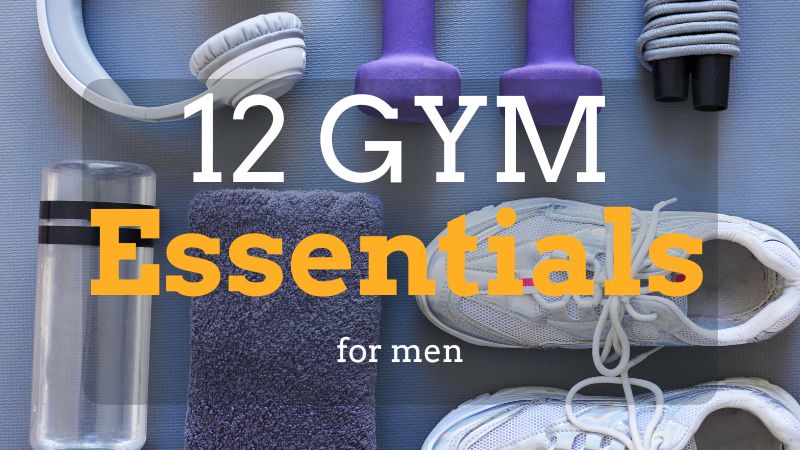
Gym Essentials For Women:A Complete List
Enthusiasts who never miss a session, understanding the gym essentials for women is crucial, not just for what to wear but also for what to

The surge in reuse water bottle practices over the past 50 years is countering a persistent environmental dilemma caused by accumulating plastic waste in our waterways and oceans, contaminating the water we rely on.
For both health and ecological motives, mindful consumers are actively seeking methods to curb their plastic use. Actions range from recycling to opting for paper over plastic bags, as people embrace the responsibility to mitigate their part in the plastic crisis.
An effective strategy adopted by many is abandoning single-use plastic bottles in favor of reusable water bottles.
Adopting reusable water bottles is a significant step in combating the plastic pollution emergency, particularly for those accustomed to carrying beverages. The allure of using a disposable plastic bottle or buying a drink in plastic packaging is strong due to its convenience.
However, understanding the profound impact of this change might make the transition smoother. Let’s delve deeper into the ramifications of plastic water bottles.
You might have a general idea about the environmental harm caused by plastic water bottles. They demand oil for production and are virtually non-biodegradable, leading to massive oceanic trash accumulations like the Great Garbage Patch. Plastic is stubbornly persistent. Yet, the detailed impacts might not be as widely known.
reusable water bottles decrease the pollution from plastic bottles, a woman navigates through water littered with plastic debris.
Plastic bottles play a major role in oceanic plastic pollution.
The journey of a plastic water bottle begins with oil, as is the case for all plastics. Its creation involves oil drilling and refining, processes that leave substantial ecological footprints. An infographic by Print and reveals that 17 million barrels of oil annually are required to produce disposable water bottles.
To translate, the oil used for each bottle could fill about a quarter of it. For a 20oz bottle, this means 5oz of crude oil, or roughly a barrel of oil for every thousand bottles. In contrast, a single barrel of oil can yield 20 gallons of motor fuel. Thus, plastic bottles harm the environment and contribute to higher fuel prices.
From oil extraction to bottle production and the bottling of water itself, around 2.5 million tons of carbon dioxide emissions are generated yearly. This process of bottling and transporting water is historically the least efficient method of water delivery.
This environmental toll occurs even before the bottle is utilized. Once discarded – whether properly or not – it adds to landfill overloads and environmental degradation. Here are some quick statistics on the fate of plastic bottles post-use:
Plastic debris, including bottles, causes the death of roughly 1.1 million sea creatures annually.
38 billion water bottles are discarded in US landfills each year.
Plastics take around 700 years to decompose, leading to rapid environmental accumulation and prolonged detrimental effects.
Plastic water bottles are not only detrimental to the environment, but numerous studies have also demonstrated their negative impact on human health. Here are four lesser-known facts about the health hazards of consuming water from plastic bottles:
Despite the significant efforts by bottled water companies to convince consumers of the superior quality of their product, often justifying the high price, the reality is that many times, the water comes from the same public sources as tap water.
Additionally, it may not undergo proper filtration, as bottled water doesn’t adhere to the same stringent standards as municipal tap water.
Regardless of whether the water in a plastic bottle originates from the purest springs and undergoes top-tier filtration, it’s still tainted by a cocktail of harmful chemicals from the plastic container.
Studies have found that plastic bottles can release endocrine-disrupting chemicals into the water. A well-known example is Bisphenol A, which mimics estrogen’s effects, potentially affecting human reproductive systems and the development of unborn babies.
Microplastics are more than just an environmental concern. As reported by The Guardian, research has revealed that an alarming 90% of bottled water brands contain significant levels of microplastics.
In a notable instance, Nestle Pure Life’s water was found to have 10,000 microplastics per liter. Even the World Health Organization has initiated a review to assess the extent of contamination in bottled water.
Considering the aforementioned points, the straightforward response is that reusable water bottles are environmentally beneficial primarily because they are an alternative to plastic water bottles.
In essence, reusable water bottles positively impact the environment in every aspect where plastic water bottles fail. They require less oil for production, replace the need for single-use plastics, and thus diminish both your carbon footprint and the accumulation of plastic waste in landfills, oceans, rivers, and other places where plastic debris is prevalent.
When aiming to minimize plastic waste, it’s critical to recognize that not all reusable water bottles are equally effective. A plastic reusable water bottle, although better than single-use, still requires oil for production and shares many of the health downsides of bottled water, particularly when used for hot drinks like tea. Hot liquids can cause more toxins to leach from the plastic into the drink.
A smarter and more eco-friendly choice would be a smart water bottle, such as a stainless steel variant. These bottles not only reduce the oil necessary for their creation but also virtually eliminate the risk of adding to plastic pollution. Smart water bottles made of stainless steel offer a non-toxic alternative to both disposable and plastic reusable bottles.
With such a smart water bottle, the danger of toxins leaching into your drink is non-existent. Moreover, with innovative features like built-in infusers for tea and fruit, you can enjoy flavored water directly from your smart water bottle!
The shift towards reuse water bottle practices addresses critical environmental and health concerns. By choosing reusable bottles over single-use plastic ones, we significantly reduce the demand for oil used in plastic production, cutting down on carbon emissions and the vast accumulation of non-biodegradable waste in our ecosystems.
This change also mitigates the health risks associated with toxins and microplastics leaching into our drinking water from plastic bottles.
While not all reusable bottles are created equal, opting for smarter, non-toxic options like stainless steel bottles not only ensures a healthier lifestyle but also contributes substantially to environmental preservation.
In embracing reusable water bottles, we take a stand against the persistent problems of plastic pollution and its far-reaching impacts on our planet and personal health.
FAQ: How do I clean and maintain my reusable water bottle to ensure its longevity?
Proper maintenance is key for reusable water bottles. Regular cleaning with warm soapy water and thorough rinsing can help prevent bacteria buildup. For deeper cleaning, using vinegar or baking soda solution periodically is recommended. Always check the manufacturer’s instructions for specific care guidelines, especially for bottles with additional features like smart water bottles.
FAQ: Can using a reusable water bottle actually save me money in the long run?
Absolutely! While the initial investment in a high-quality reusable water bottle may be higher than buying a single-use plastic bottle, it saves money over time. You avoid the recurring costs of purchasing bottled water, and many public places now have water refilling stations, making it convenient to refill for free.
FAQ: Are there any health benefits to using a smart water bottle?
Smart water bottles can offer health benefits by promoting hydration through reminders and tracking water intake. Some come with features like temperature control, ensuring your drinks stay at your preferred temperature, which can encourage more consistent water consumption.
FAQ: Is it better for the environment to use a glass or stainless steel reusable bottle?
Both glass and stainless steel are eco-friendly options. Glass is completely recyclable and doesn’t leach chemicals. Stainless steel is durable and also recyclable. The choice depends on personal preference and lifestyle needs. For instance, stainless steel is more suitable for active, outdoor use due to its durability.
FAQ: How do reusable water bottles reduce carbon footprint?
Reusable water bottles reduce the need for producing plastic bottles, which involves fossil fuel consumption and greenhouse gas emissions. By using a reusable bottle, you contribute to lower oil demand for plastic production, and reduce waste and pollution associated with plastic bottle disposal.


Enthusiasts who never miss a session, understanding the gym essentials for women is crucial, not just for what to wear but also for what to

A common myth circulating in the fitness world is the belief that a gym diet plan is unnecessary. Many seem convinced that they can simply

The average bench press, often referred to humorously in gyms as ‘How much ya bench’ or ‘whaddaya bench?’, stands as a quintessential measure of strength

Nowadays, we always seem to be packing a bag for something. Whether it’s getting ready for work with your messenger bag or briefcase, filling up

Enthusiasts who never miss a session, understanding the gym essentials for women is crucial, not just for what to wear but also for what to

A common myth circulating in the fitness world is the belief that a gym diet plan is unnecessary. Many seem convinced that they can simply

The average bench press, often referred to humorously in gyms as ‘How much ya bench’ or ‘whaddaya bench?’, stands as a quintessential measure of strength

Nowadays, we always seem to be packing a bag for something. Whether it’s getting ready for work with your messenger bag or briefcase, filling up
Copyright © 2025 remindsmartbottles. All Rights Reserved.
Copy the coupon code below and fill it in when you purchase to enjoy!
newuser